
Covid: What's happened to crime during the pandemic?
From the first coronavirus fines for everyday activity, to sudden fluctuations in offences because of the impact of restrictions on our lives, these changes to community safety will have a lasting impact for years to come.
Drops in crime
Levels and types of crime are always changing - but in general terms the trend has been downwards since the mid-1990s.
The most reliable and in-depth measure is the Crime Survey for England and Wales - but that face-to-face survey has had a challenging year because it had to move to telephone calls.
So, taking that into account, the best we can say for sure is that total crime reported to the police - the second way we count what's going on - has fluctuated quite considerably.
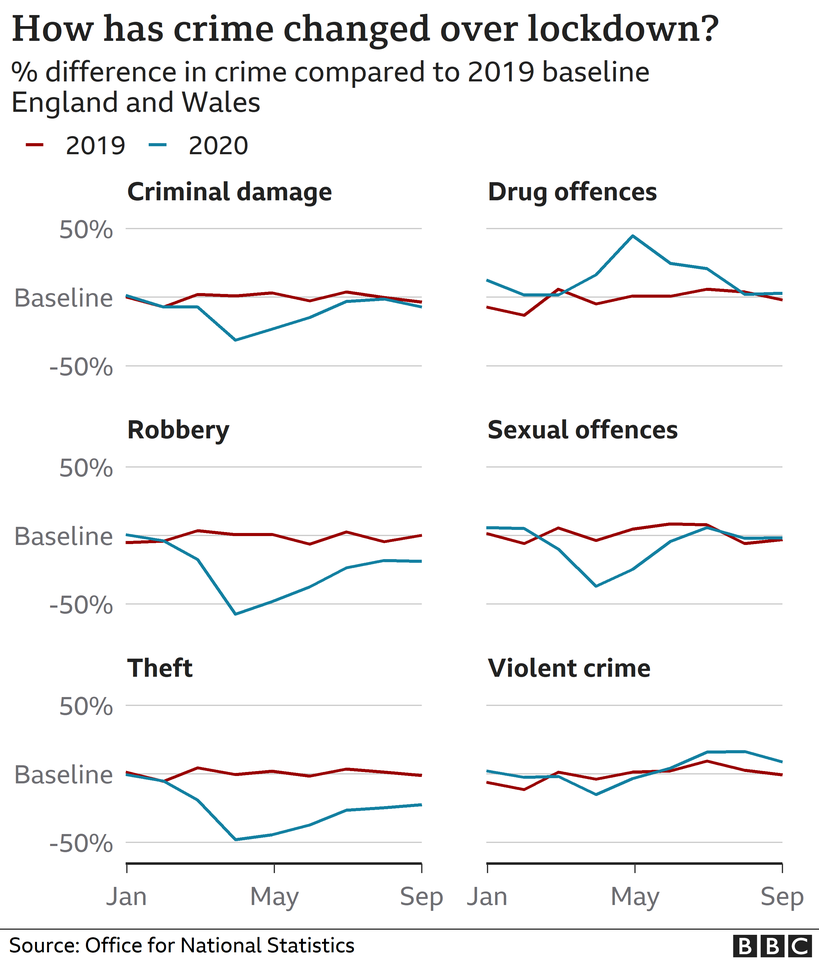
In the year to September 2020, police-recorded crime had the biggest annual decrease since 2010 - albeit with the some variations by specific offence.
Robbery and theft dropped dramatically during 2020 for the simple reason that there were fewer people out and about. If everyone is at home all the time, it's rather difficult to burgle a house.
One crime shows how offences are often driven by demand: reports of stolen dogs have soared as the lockdown nation has looked to four-legged friends to get them through a hard year.
Anecdotally, many communities have experienced more fly-tipping and fraud.
Spike in drug crime
Some very serious offences have gone up - such as recorded drug crime.
Why - is everyone turning to narcotics to deal with the stress?
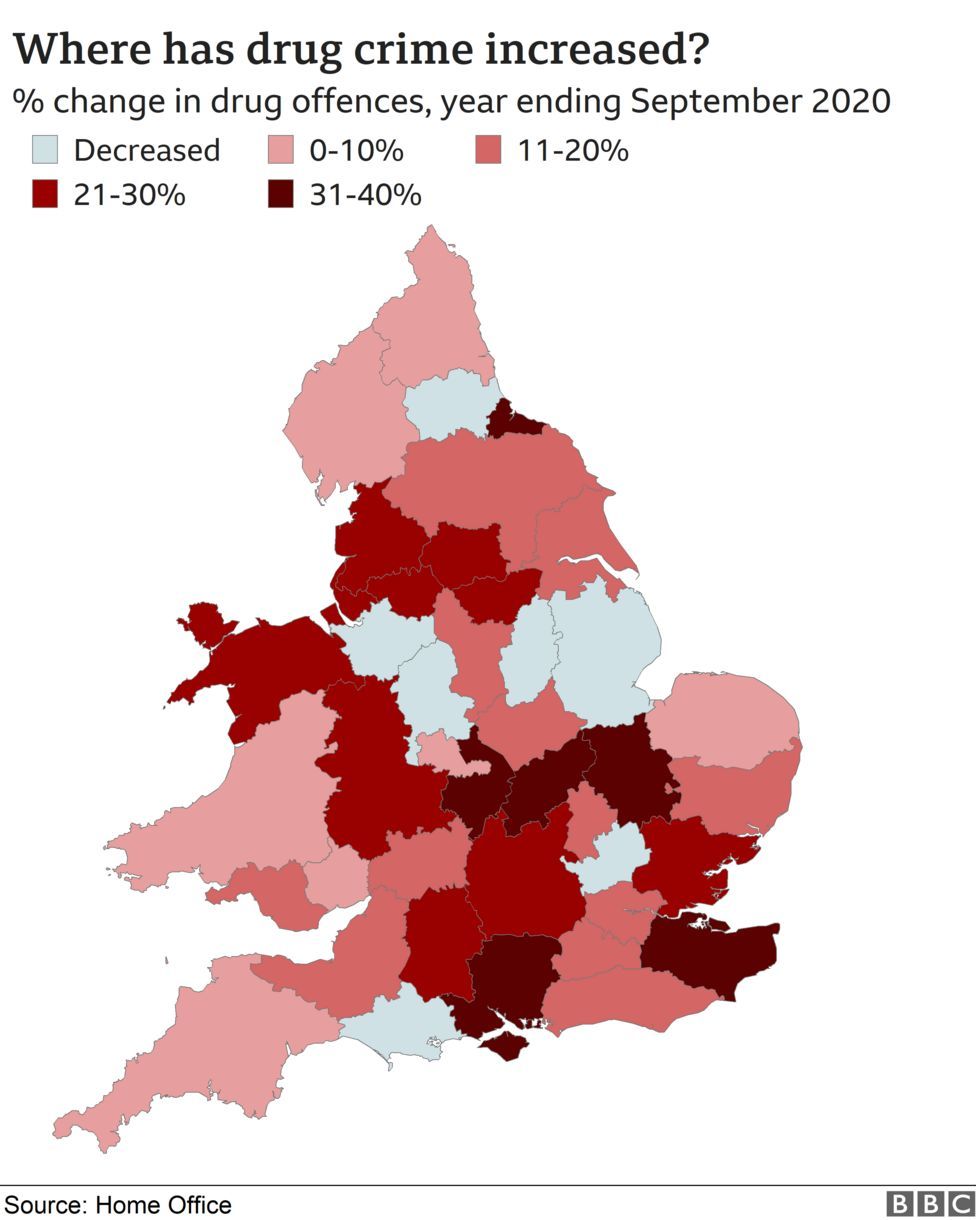
The rise has been driven by the pandemic restrictions providing police with a once-in-a-generation opportunity to target dealers.
In London for instance, the Metropolitan Police began running more proactive drugs operations because dealers and suppliers were easier to find as they struggled to move freely during lockdown.
The police in the capital also backed up those operations with the largest surge in stop-and-search powers since 2012.
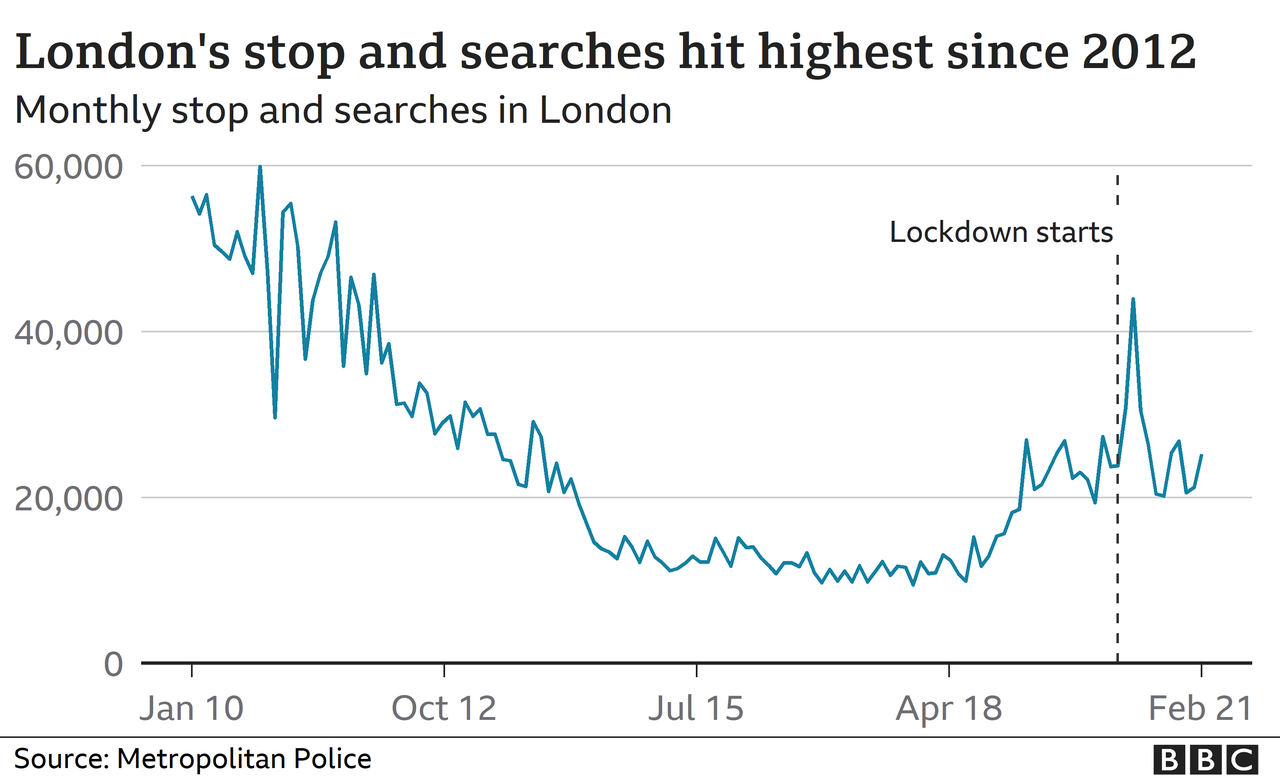
Domestic abuse rises
Domestic abuse has gone up during lockdown, as victims have been trapped at home with their abusers.
"While lockdown itself does not cause domestic abuse, it can aggravate pre-existing behaviours in abusive partners," said Sandra Horley, of the charity Refuge, last year.
"Women up and down the country are isolated with abusive partners - and children will be witnessing, and in some cases experiencing, domestic abuse."
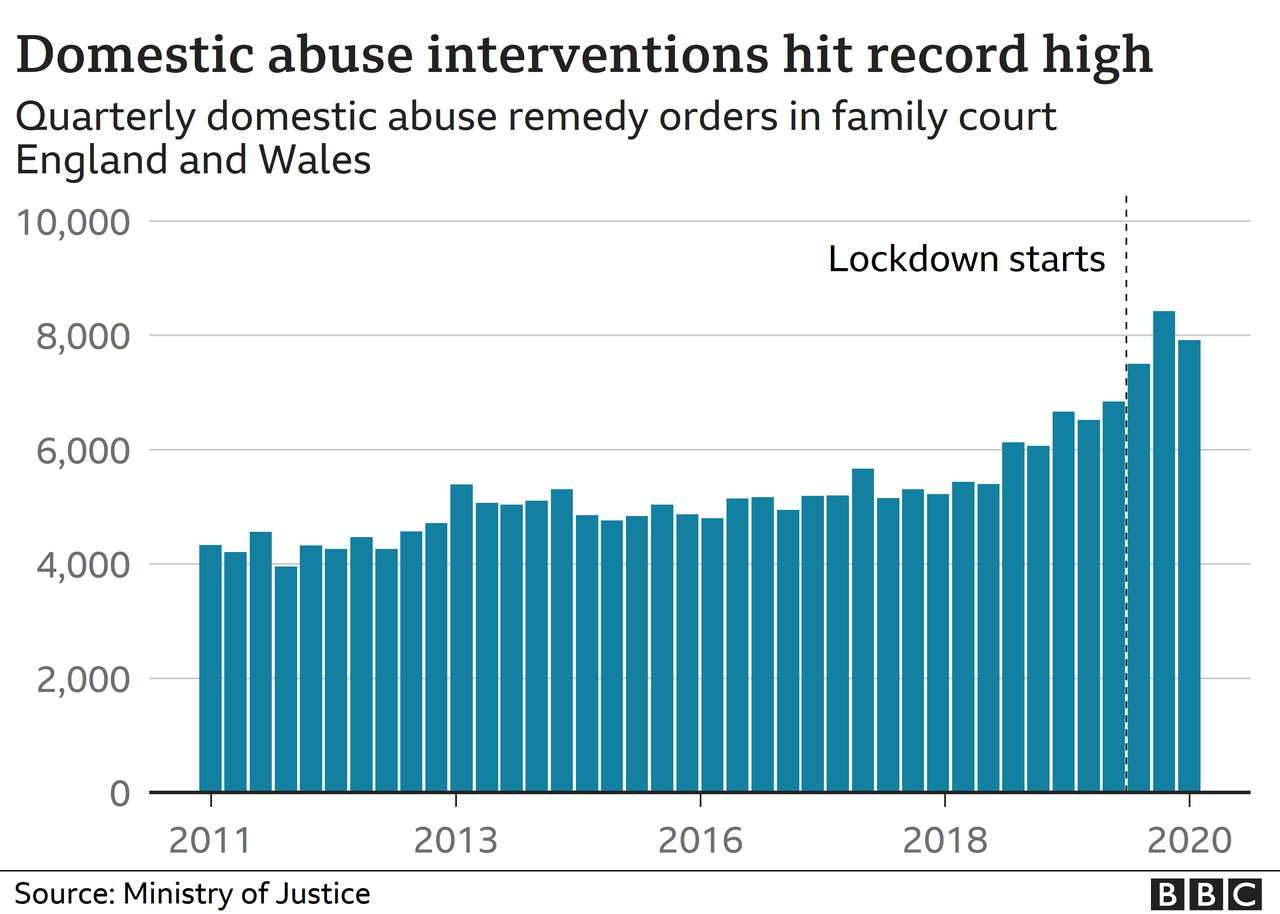
Figures published this week show a corresponding rise in court orders to protect victims - typically injunctions that ban a suspected perpetrator from going near their former partner.
Statisticians believe the orders may also have risen because of the number of suspects who the police have released while they remain under investigation.
Court backlog
One of the least visible effects of the pandemic on criminal justice is the impact on the courts.
We now have a record backlog of 57,000 cases in the Crown Courts - meaning that some trials will not go before a jury until 2023 unless things change substantially.
The Ministry of Justice has been opening more so-called "Nightingale Courts" to help manage the workload - but critics say the problem is far deeper.
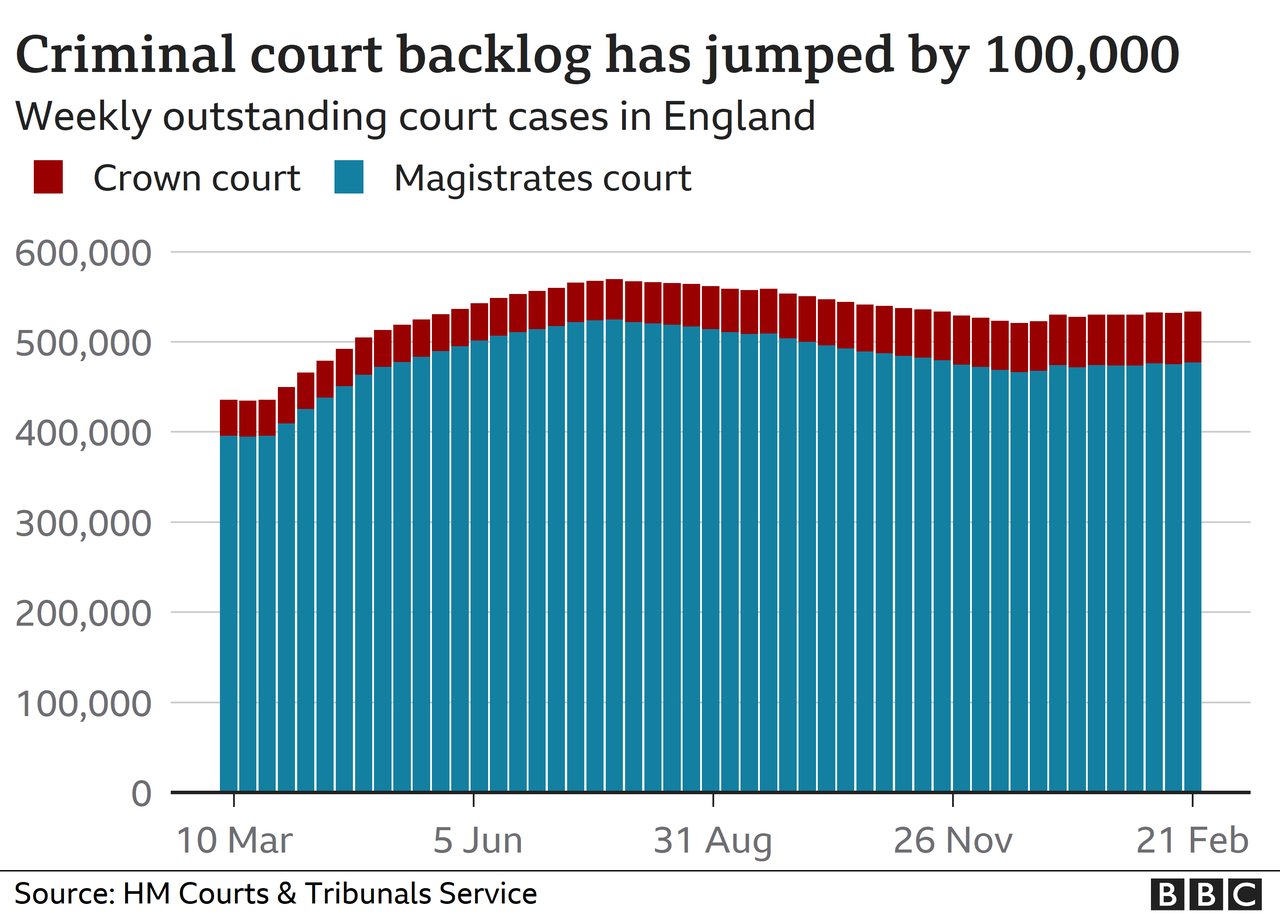
The backlog before the pandemic was about 39,000 as courtrooms across the country had been kept locked up because of budget cuts.
Justice Secretary Robert Buckland is promising a major increase in court "sitting days" to ease this - we'll see in the coming weeks if he gets the extra cash from the Treasury to pay for all the extra judges and court staff time.
Coronavirus fines
Finally, there are the offences police officers never thought they'd have to deal with: the unique penalty fines for breaking lockdown restrictions.
The rate of fines has increased quite considerably during this third lockdown; two-thirds of all fines have been handed out since 21 December.
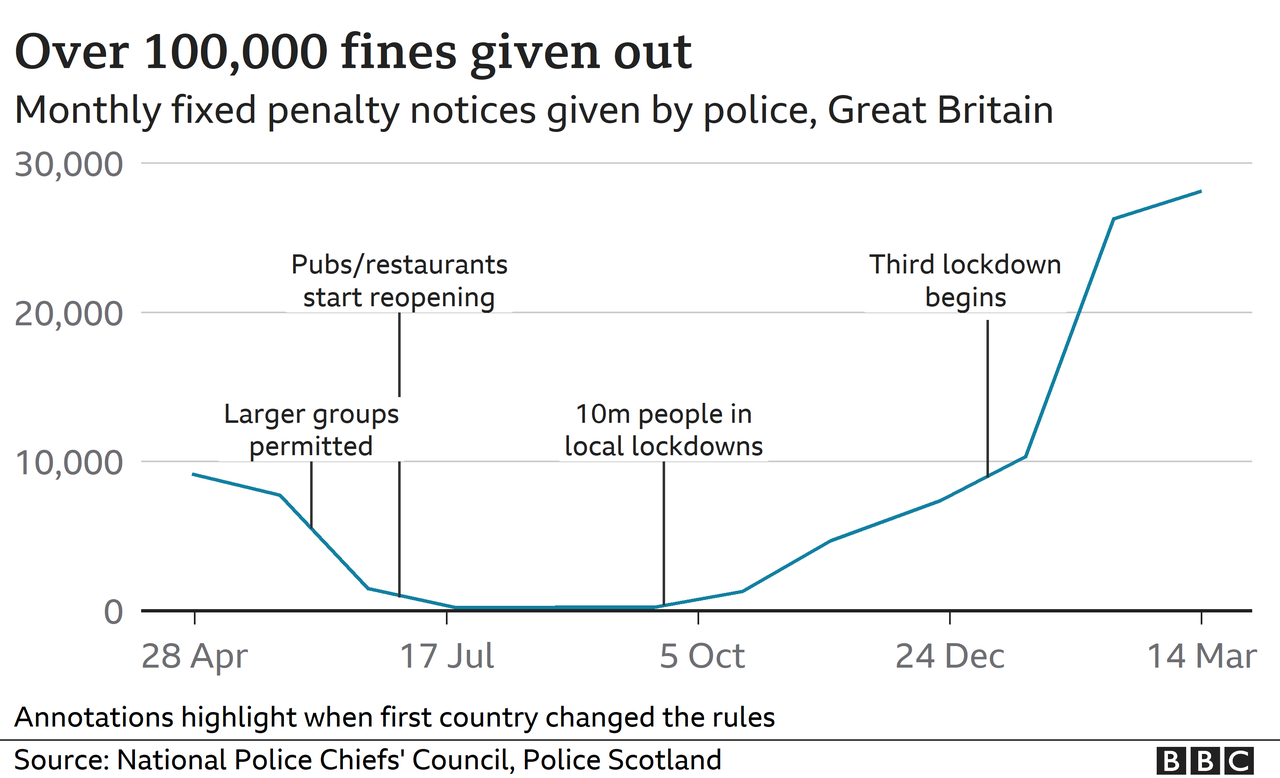
Towards the end of last year, ministers began putting pressure on police chiefs to do more to enforce the restrictions amid widespread fears of an overwhelming wave of the virus.
They even found £30m extra to pay for special Covid police patrols.
Uneven distribution
Some rules have been more difficult to enforce than others.
Very few people have been fined for breaking quarantine after travel last summer.
Separate data published last year suggested police simply did not have the time to chase up reports about returning holidaymakers potentially carrying the virus.

A frequent concern among many police officers is that the restrictions have been difficult to enforce, because the laws have not been clear enough.
That's why there was such a furore when two women in Derbyshire were effectively fined for the offence of walking with a cup of tea in their hands.
John Apter, chair of the Police Federation of England and Wales, which represents frontline officers, says policing the pandemic has been enormously challenging.
"Sudden changes in the law with little or no time to wrap their heads around the guidance accompanying it, coupled with a tier system and the challenges of different legislation in England and Wales, has made it incredibly difficult."
They estimate that there have been 60 changes to legislation over the year.
The north of England has borne the brunt of many of these rule changes, with areas going in and out of local lockdown more than the south.
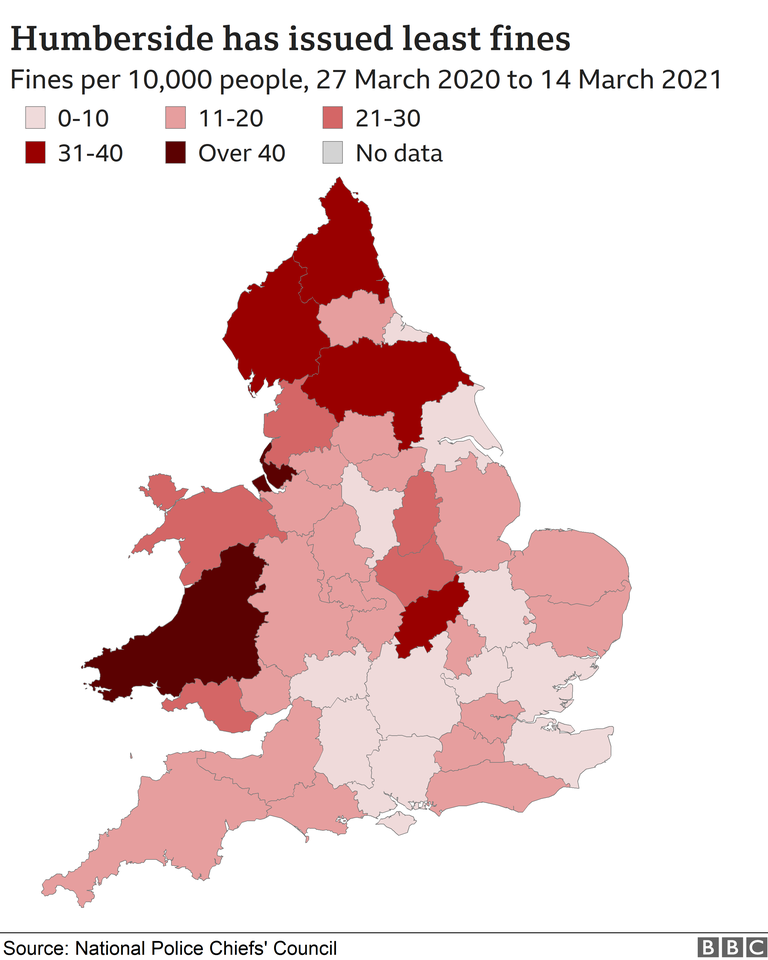
This might help explain why people in Lancashire, for example, are being fined at twice the rate as those in Surrey.
And police forces with beauty spots, which might bring in "illegal", out-of-area visitors, have also seen high enforcement rates.
Asked why there are such regional variations, the National Police Chiefs Council says all forces have followed base guidelines to encourage people to abide by the lockdown before officers have moved to fine.
"Direct comparisons on numbers of fixed penalty notices [fines] are challenging as forces will have experienced different issues," said a spokesman.










